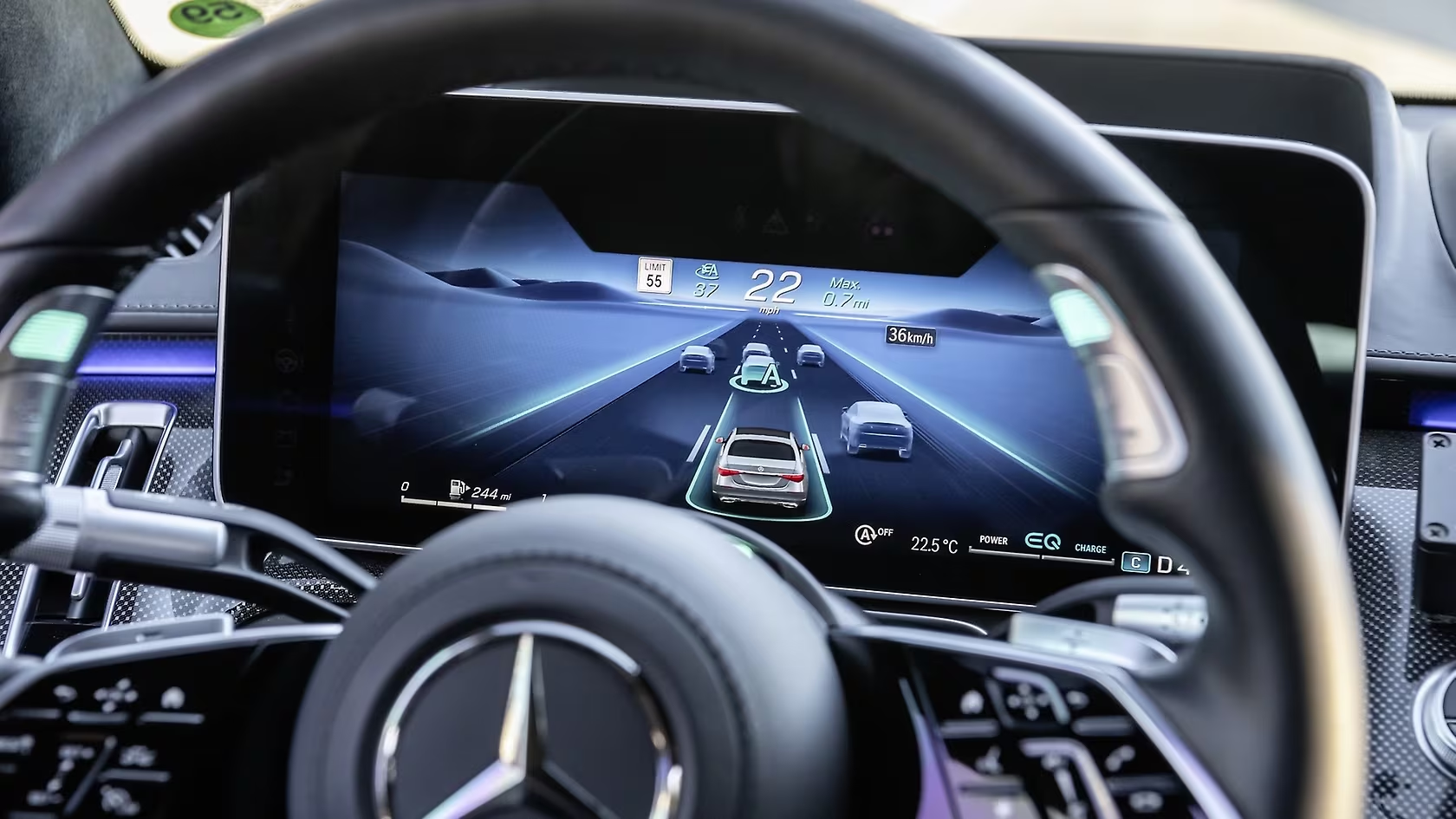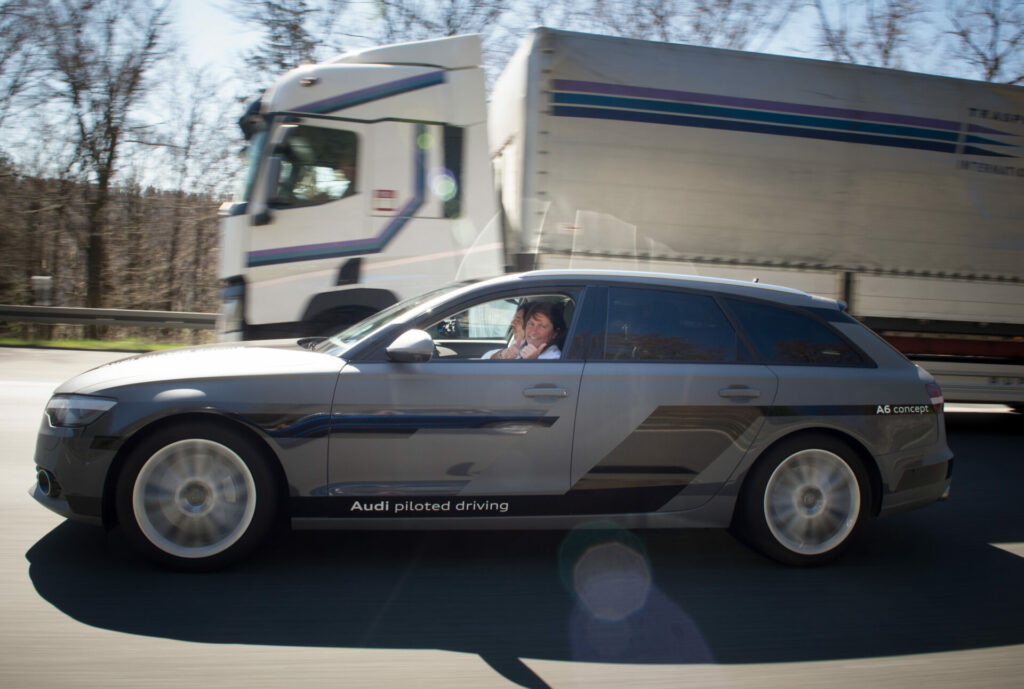Plans to launch self-driving cars in Belgium have been put firmly on ice as Mobility Minister Georges Gilkinet said that systems that allow drivers to do other things behind the wheel would not be permitted on Belgian roads.
There are six levels of driving automation, according to the Society of Automotive Engineers – an international organisation based in the US. This ranges from 0 or fully manual (the level of most vehicles on the road today) to 5 (fully autonomous). Some automotive companies, including Audi and Mercedes, have already produced level 3 vehicles with "environmental detection" capabilities.
These can make informed decisions and the car can take over the driving but still require human override, requiring the driver to remain alert and ready to take over at any time. In Germany, some Mercedes models with this level of autonomous driving are allowed on the motorway.

The Mercedes level 3 system ensures the display indicates that the DRIVE PILOT mode is on. Credit: Mercedes Benz
The company hoped to offer the same system in Belgium, but Gilkinet's statement confirms that the necessary legal permission will be withheld: "I am not in favour... people who sit in their car playing games are not alert enough to intervene quickly if necessary," the minister told Het Nieuwsblad.
He added that self-driving cars are interesting in the logistics sector but that on the road they only add to the number of vehicles that get stuck in traffic jams and cause pollution. Gilkinet argued that for long journeys people should be encouraged to travel by train rather than sit in a self-driving car. "On the train, they can also rest."
Holding back the tide
Gilkinet's remarks have received criticism on several fronts, including from his Flemish colleague Lydia Peeters who told Belga News Agency that she regrets his statements, adding that she favours "technological progress and sustainable growth".
Peeters oversaw the launch of the Taskforce for Autonomous Transport in Flanders at the end of September. This aims to "steer the rise of autonomous transport in Flanders in the right direction and give maximum support to new pilot projects". She noted that autonomous mobility "is a reality we cannot avoid".
This argument was echoed by Stef Willems of road safety institute Vias. He warned that the technology is unstoppable, even for passenger cars, and that the government should instead organise more pilot projects to evaluate the technology.
Mobility organisation Touring claimed to be "absolutely appalled" by the news and "disappointed in the minister's unwillingness" to pave the way for self-driving vehicles to enjoy their benefits.
Related News
- World first: European Parliament votes for ban on AI facial recognition
- Brussels transport company Ziegler wants to experiment with self-driving vans
It argued that automated vehicles can be a big step forward in terms of road safety and can also have "resolutely positive effects in terms of traffic flow and thus environmental impact". Instead it called for pilot projects to study autonomous vehicles as a matter of urgency.
"Putting the brakes on technological improvement that is in full swing will never have a lasting positive effect. It weakens our position against neighbouring countries that do ambitiously keep up with technological innovation," the organisation noted.
Touring called Gilkinet's preference for trains rather than cars "a destructive strategy," adding that "We need the best and most advanced technology for all modes of transport to roll out a high-performance, multi-modal mobility system." It urged to see the policy debate in terms of 'and-and' rather than 'either-or'.

